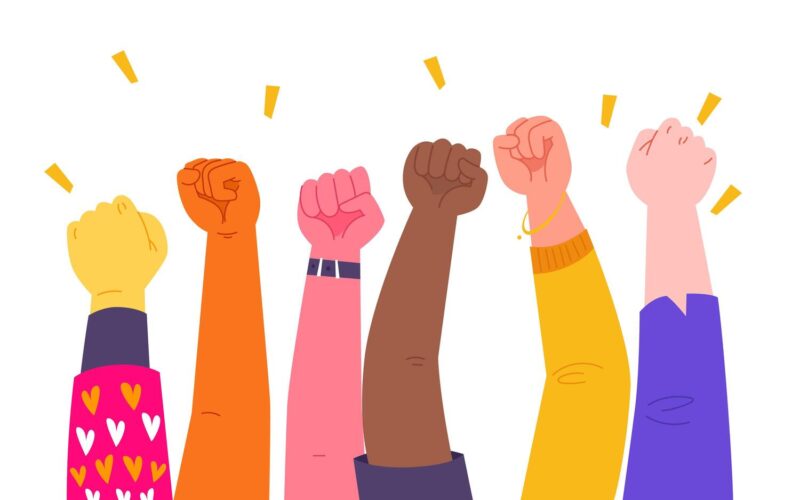Capitalism takes many forms, but the core principles underpinning the capitalist system are common in almost all market economies. The structure of the capitalist economy depends on profit maximization, the existence of private property, free and accessible markets, self-correcting market mechanisms, and the free exchange of labor and services with respect to the division of labor. In addition, behavioral economists have emphasized the role of intangible factors such as “self-interest” that drive markets forward and individuals toward innovation and competition. In today’s economy, this “self-interest” is realized through an entrepreneurial spirit that is said to facilitate the free exchange of goods and services. However, the pandemic and the current global system reveal something far more sinister. It undermines human rights around the world and raises the question, “Can human rights and capitalism coexist? (Smith, 2022)”
Today, the human rights system reflects individualism, free markets, private property, minimal government interference, and deregulation—the core features of capitalist globalization. Civil and political rights provide fundamental values to sustain these characteristics. While the global human rights system does include economic, social, and cultural rights, this set of rights is grouped into the status of aspirations that can be realized once a country has achieved a sufficient level of economic development. Treating economic, social, and cultural rights equally with civil and political rights challenges the liberal notion of the individual, who must be free from all obstacles to wealth creation. Poverty, hunger, and social disintegration could be the result of economic globalization. However, those who exercise liberalism and many critics argue that, although the development of international law and human rights organizations offers comprehensive human rights protection, globalization provides a social and economic environment, and in this environment, the protection of these rights is not safer than it was in the past. This is because globalization constructs a transfer of wealth from the poor to the rich, exacerbates existing inequalities within and between countries, rewards capital at the expense of labor, and creates many more losers than winners. It is widely accepted that national leaders are responsible for serious human rights violations. Today, however, the conduct of multinational corporations, financial institutions, and international organizations operating within accepted international law is implicated.
Thus, the measures taken by the WTO and other organizations critical to the global economy, such as the World Bank and the International Monetary Fund, undermine the efforts of global human rights institutions, international human rights law, and the work of progressive advocates of socio-economic rights. This is why the link between trade liberalization and human rights is often overlooked. On the rare occasions when civil and political rights are linked, the interests of the global market prevail.
To minimize the danger of destabilizing revolutions from within, what Robert Cox calls “surplus workers,” global governance institutions have developed a two-track policy: inadequate relief and riot control. The first of these takes the form of humanitarian interventions to provide food, shelter, and health care. Mass poverty will undermine the process of global economic integration. If this fails to quell the danger of social unrest, the riot track will be launched in the form of police and military operations, both domestic and international. Much of the work of the United Nations and many non-governmental organizations is devoted to one or both of these tracks.
Poverty, hunger, overpopulation, epidemics, child labor, terrorism, and urban violence are just some of the threats that stigmatize the troublesome many. For those who enjoy a comfortable life of full employment, the unfortunate consequences of a modern world order must not be allowed to stand in the way of progress. Although billed as a core principle of liberalism, tolerance has its limits. Exercising civil and political rights to protest against liberalism is itself beyond this limit (EVANS, 2016).
References:
EVANS, T. (2016). Does globalizing capitalism violate human rights? | OUPblog. [online] OUPblog.
Available at: https://blog.oup.com/2016/12/globalizing-capitalism-human-rights/
[Accessed 24 October 2022].
Smith, A. (2022). Can Human Rights And Capitalism Ever Be Truly Compatible? [online] Human Rights Pulse. Available at: https://www.humanrightspulse.com/mastercontentblog/can-human-rights-and-capitalism-ever-be-truly-compatible#:~:text=Perhaps%20the%20most%20central%20idea [Accessed 26 October 2022].
